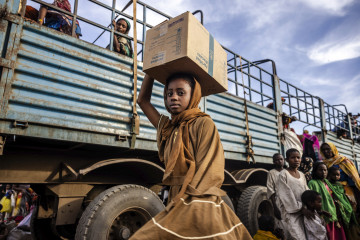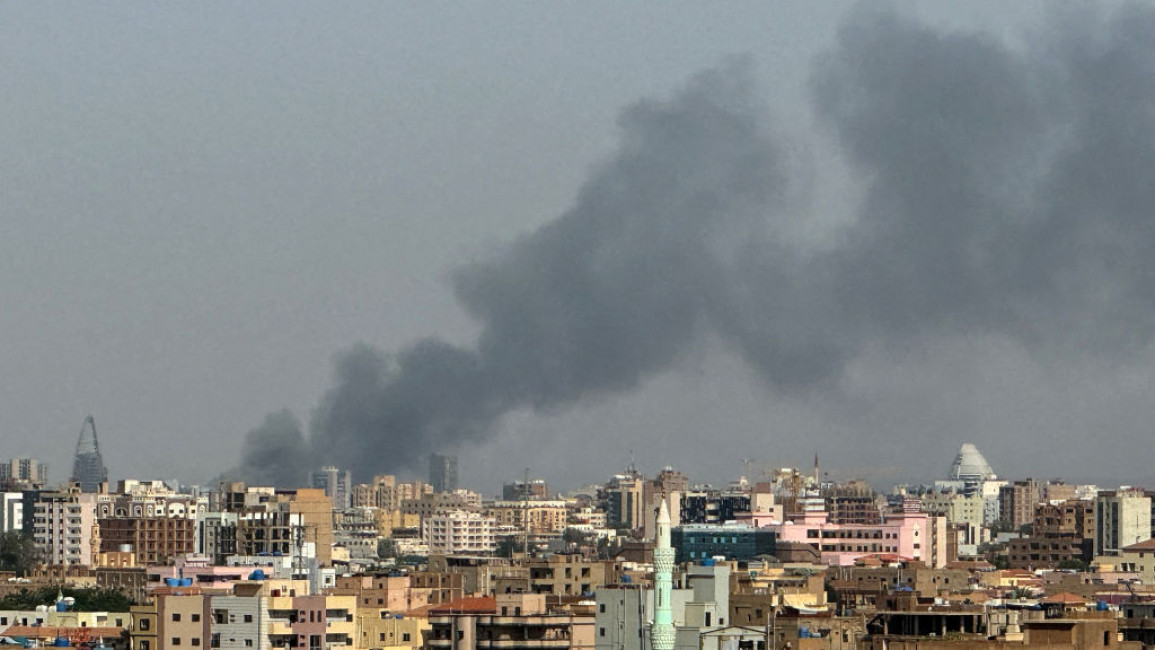

Sudan’s civil war has become another pivotal theatre for geopolitical rivalries as foreign powers compete for influence in the strategically vital Red Sea region.
Similar to the Houthis in Yemen, Sudan's location offers a chokehold over one of the world’s most crucial maritime trade routes, the Suez Canal, making it a highly coveted target for foreign interests.
In March this year, Iran reportedly offered to set up a naval base in Port Sudan, a request that, if approved, would have given Tehran another crucial foothold in the Red Sea.
Despite the Sudanese military's rejection of the offer, there are concerns over Iran’s role in supplying the Sudanese Armed Forces (SAF) with cutting-edge drone technology and its broader ambitions to monitor maritime activities near Israel and across the region.
Russia also has significantly increased its involvement, offering what it terms “unrestricted qualitative military aid” to Sudan's government. Analysts caution that such interventions will likely extend the conflict and disrupt the region's stability.
"Sudan has long been vulnerable to foreign interferences," said Sudanese political analyst Mohamed al-Amin. "After the revolution, several power centres emerged, each looking to establish control, and foreign powers seized the opportunity to back different factions."
Al-Amin pointed out that civilian leaders in Sudan had been striving to establish a transparent foreign policy to help the country overcome its isolation. However, Sudan's military rulers have chosen a different path.
Both SAF and Rapid Support Forces (RSF) leaders have actively sought alliances with foreign actors, including the UAE, Egypt, Russia, Iran, and even Israel to consolidate their hold on power.
|
|
Sudan has effectively become "a commodity on the global stage," according to al-Amin, with each faction exploiting its natural resources, chiefly gold and land, to fund the war.
“The Red Sea is now at the centre of intense international competition, and the risk of wider conflict looms large,” he added.
Major General Amin Ismail Majzoub, a Sudanese military expert, told The New Arab that while Russia and Iran are assisting Sudan with equipment and weapons, direct military intervention is unlikely.
"Sudan has become a theatre for regional and international power plays," he said. "But establishing foreign military bases remains a precarious move due to Sudan's unpredictable foreign policy and lack of a coherent strategic direction."
Iran's ambitions in Port Sudan
Iran's desire for a naval base in Port Sudan would have allowed Tehran to closely monitor the Suez Canal and Israel's southern flank. Though the Sudanese military turned down the proposal, Iran has not wholly stepped back, with Majzoub suggesting it is continuing to supply drones to government forces.
Suliman Baldo, executive director of the Sudan Transparency and Policy Tracker, an independent, professional, nonpartisan Sudanese-led think tank, told The New Arab that Iran remains keen on establishing a naval facility in the Red Sea but faces obstacles due to Sudan’s ties with Saudi Arabia.
"Sudan’s alignment with Riyadh is a major factor in why the base proposal was rejected," he said. "But the civil war is also providing autocratic regimes with an opening to expand their influence in Sudan."
Majzoub warned that allowing foreign military bases from non-riparian states could lead to the Red Sea becoming a flashpoint for conflict.
"The Red Sea is a vital artery for Gulf oil," he said. "If nations like Iran are allowed to establish a military presence, it would be tantamount to a declaration of war."
Russian influence via Wagner Group
According to Baldo, while Russia faces constraints in how much support it can extend to Sudan - given its ongoing war in Ukraine - it has already laid significant groundwork in the country. This is because Moscow had already strengthened its foothold in Sudan even before the conflict erupted, mainly through the paramilitary Wagner Group.
Under Yevgeny Prigozhin's leadership, Wagner mercenaries supported the RSF, supplying military aid and training.
"Russia's involvement in Africa is about leveraging its military capabilities to extract natural resources," Baldo said. "The Wagner Group has evolved into the ‘African Legion,’ operating in failed states like Sudan, offering military and political support in exchange for gold, diamonds, uranium, and oil."
Russia’s deepening ties with Sudan’s gold industry have provided Moscow with a pivotal resource to sidestep Western sanctions imposed after it invaded Ukraine. Wagner reportedly delivered military trucks, amphibious vehicles, and transport helicopters to Sudan, which helped solidify Moscow’s access to gold reserves, a critical resource for funding Russia’s war effort, according to Baldo.
Since Prigozhin died in an aircraft accident last year, Russia has adjusted its strategy, Majzoub said.
“Russia used to be exclusively supportive of the RSF, but now the situation has changed, as Moscow now supports SAF too,” he added.
Baldo agreed that Moscow is now offering "allegedly unlimited" military assistance to Sudan’s Islamist-aligned armed forces led by General Abdel Fattah al-Burhan.
He also noted that for Iran and Russia to decisively tilt the balance of the conflict, they would need to maintain the supply of advanced drones equipped with night vision and precision-targeting capabilities to the Sudanese army.
"This is the kind of support that could shift the conflict, much like what the UAE provided in Ethiopia’s Tigray conflict," he explained. "But as of now, no similar ally has stepped forward for the RSF."
Majzoub downplayed the likelihood of direct Iranian or Russian military intervention but suggested that the continued supply of high-grade weaponry could eventually turn the tide in favour of Sudan’s army.
"If the military receives high-quality arms, they might achieve a resolution through force," he said. "However, if that happens, we could see other nations respond by backing the RSF, which would only prolong the war."
This article was produced in collaboration with Egab.




 Follow the Middle East's top stories in English at The New Arab on Google News
Follow the Middle East's top stories in English at The New Arab on Google News


